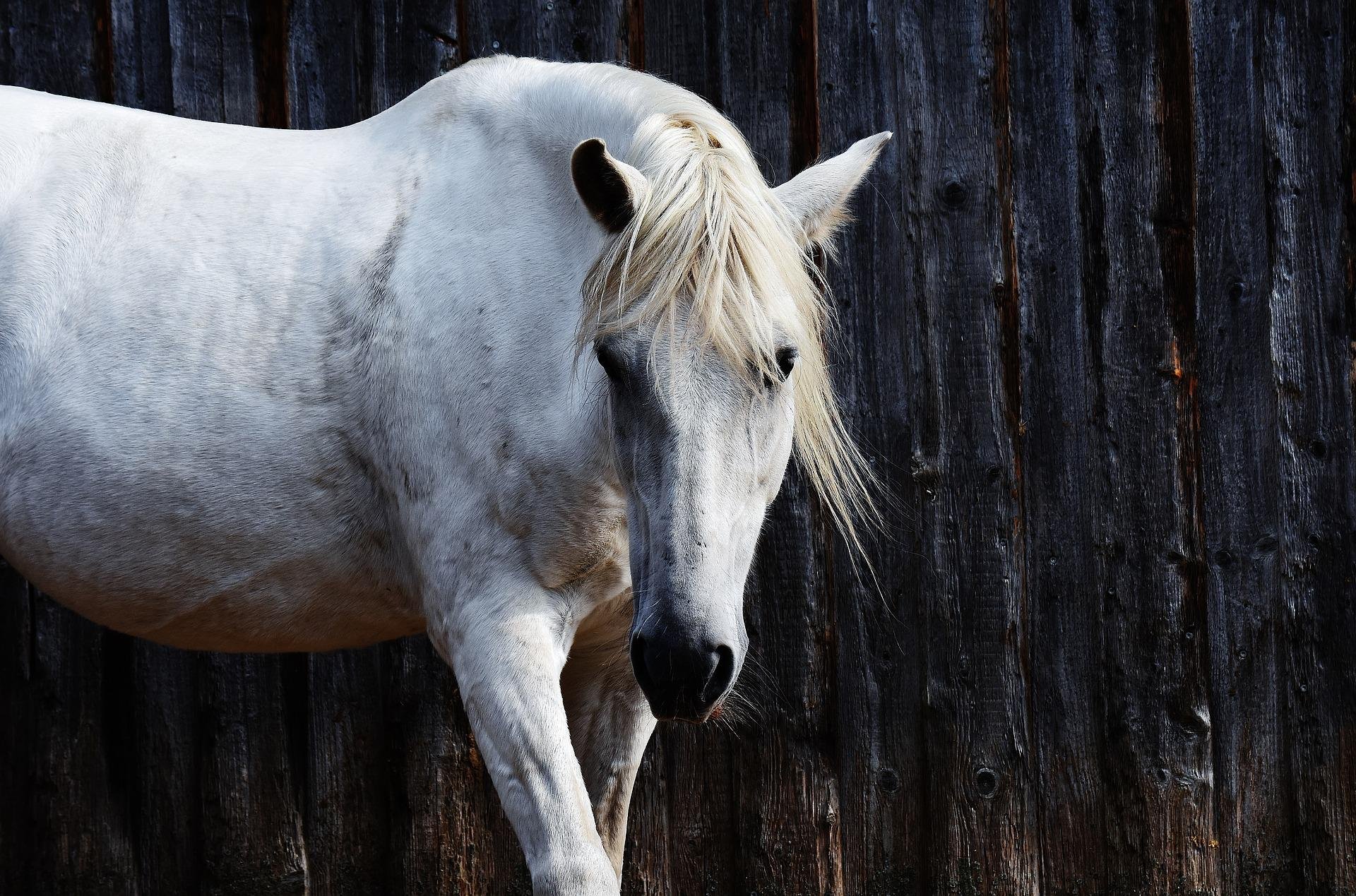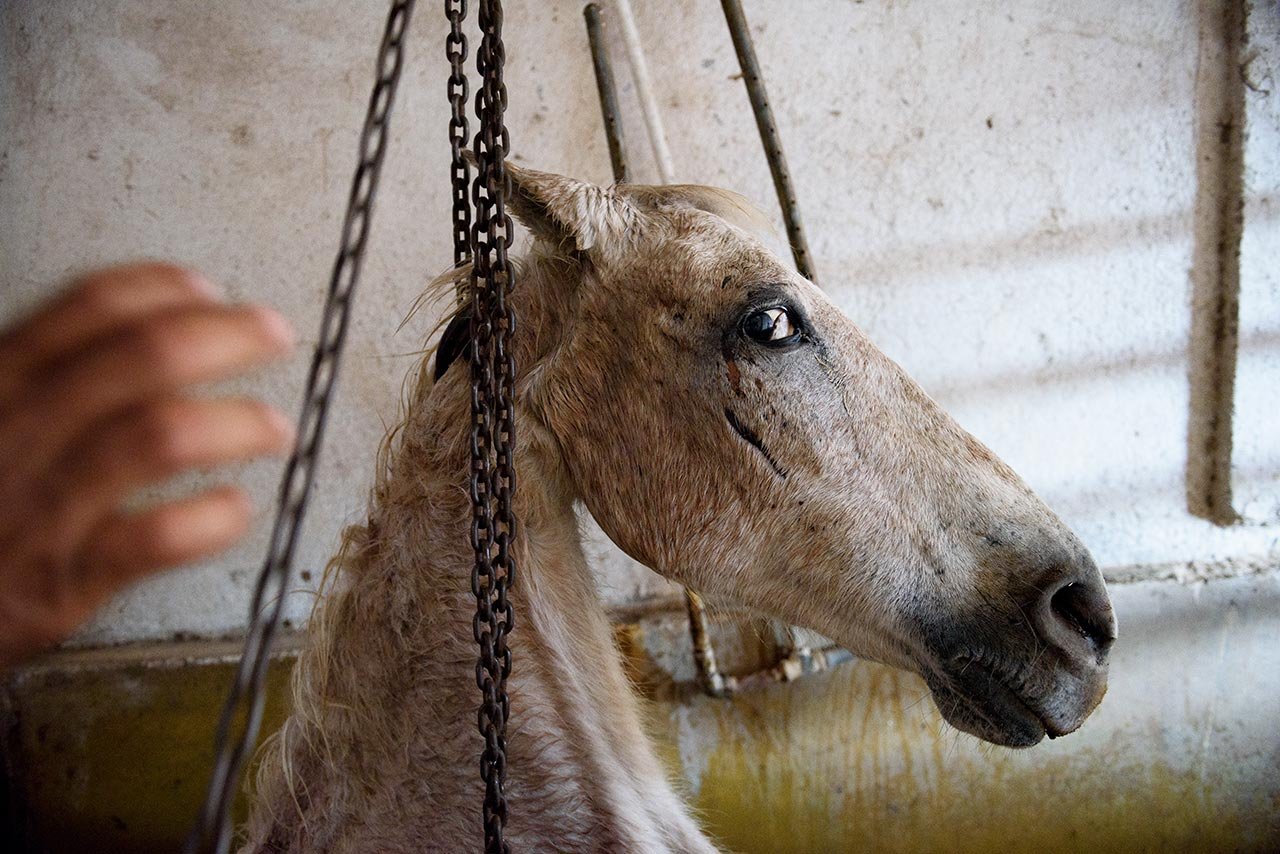Petition Update: Anti-Horse Slaughter Bill Moves to Subcommittee Hearing
During the hearing, lawmakers discussed bipartisan legislation to close the loopholes that enable thousands of horses to be transported to slaughterhouses in Canada and Mexico each year. The final vote will take place in ten days - here’s how you can help ramp up support for the life-saving bill.
Federal legislation that would permanently ban horse slaughter in the United States and end the export of American horses for slaughter abroad is currently being considered by the U.S. House Subcommittee.
Today, animal welfare experts attended a hearing where the Save America's Forgotten Equines (SAFE) Act (H.R.3355) was considered by federal lawmakers.
While the slaughter of horses for human consumption in America was banned in 2007, over the last five years, it is estimated that around 288,000 horses have been transported to slaughterhouses in Mexico and Canada, with the meat sold across Europe and Asia.
The SAFE Act was introduced by a bipartisan group of senators last September. If passed, the bill would “make it unlawful to knowingly possess, ship, transport, purchase, sell, deliver, or receive a horse for it to be slaughtered for human consumption”, closing a legal loophole that currently sees thousands of horses trucked to slaughterhouses across state lines every year.
The loophole has been exploited by so-called 'kill-buyers', who buy horses with the sole intention of sending them to slaughterhouses abroad. Kill-buyers attend horse auctions, where they often outbid re-homing groups and charities, while they also pose as genuine adopters when owners can no longer look after them.
"The brutality of horse slaughter knows no bounds", said Debbie Coburn, founder of Four Corners Equine Rescue. "I've been rescuing horses for 17 years in New Mexico and it's business as usual to eyewitness the horrific conditions and treatment the horses are subjected to."
Credit: Tras Los Muros
The animals are transported into unsafe, overcrowded trailers, and without access to food or water. Many of them suffer exhaustion and dehydration during the long-haul journeys, according to equine advocates. Such is the overcrowding, and the thousands of miles to be traveled, the horses are often injured or die en route.
"Congress voted to ban horse slaughter well over a decade ago by large bipartisan majorities in the House and Senate and acted more than four decades ago to end the cruel practice of horse soring, but legal loopholes have allowed American equines to be exported to other countries for slaughter, and horse soring to persist largely due to industry self-policing," said Katie Kraska, director of federal legislation for The American Society for the Prevention of Cruelty to Animals (ASPCA) who testified in support of the bill during the subcommittee hearing.
ASPCA, is part of a coalition supporting the bill, alongside The Jockey Club, The Stronach Group, Breeders' Cup, the Thoroughbred Owners and Breeders Association, Jockeys' Guild, the New York Racing Association, Del Mar, and other entities.
During the hearing, Kraska detailed evidence of injuries sustained by the horses during transportation across state lines, noting that the animals have arrived at slaughterhouses with broken limbs or their eyes hanging out of their sockets. Others don’t survive the journey that can last around 28-hours, with dead horses being found downed or trampled to death in the tightly packed carts.
Kraska also cited a 2021 study in the Journal of Meat Sciences which found that 79 percent of horse carcasses exported for slaughter from the U.S. exhibited significant bruising. These results were similar to a study conducted by the EU in 2014.
What’s more, research published in 2017 revealed that 2.3 million Americans are willing and able to adopt the horses that are being slaughtered for meat, far outweighing the 23,000 horses who were exported for slaughter last year. This, combined with the work being done by the equine industry and horse shelters to grow the amount of adoptions while providing safety net programs to help keep horses in home, indicates there’s a clear solution to provide for these animals.
The legislation is sponsored (in the House) by Representatives Janice Schakowsky (D-IL) and Vern Buchanan (R-FL), and (in the senate by) Senators Lindsey Graham (R-SC), Sheldon Whitehouse (D-RI), and Susan Collins (R-ME).
Although not currently being considered at this time, the Subcommittee also heard arguments in favor of another equine protection bill during the hearing. The Prevent All Soring Tactics (PAST) Act, H.R. 5441 would end the cruel practice of horse soring where chemicals and devices are used to inflict pain on show horses to force an exaggerated, high-stepping gait often referred to as the "Big Lick," according to ASPCA.
As with the SAFE Act, the PAST Act is aimed at closing loopholes that allow soring to continue despite being banned decades previously.
What can you do?
The Species Unite community has been ramping up support for the senate version of the bill by coming together to urge the Senate Judiciary Committee to pass the SAFE Act, with more than 11,000 of you speaking out.
The members of the Subcommittee of Consumer Protection and Commerce will now have 10 days to send additional questions to the witnesses from today’s hearing before they will consider the bills. During that time, amplifying support for the bill could be crucial.
If you are from Illinois, New Jersey, Florida, Michigan, Ohio, Kentucky, Indiana, Arizona, North Dakota or Washington state, please consider reaching out to your congressional representatives and asking them to support the SAFE Act.
Here is the list of the members of congress who will be voting on the SAFE Act in committee. Those with an asterisk (*) after their name are already co-sponsors of the bill.
Democrat:
Republican:
We Have A Favor To Ask…
Species Unite amplifies well-researched solutions to some of the most abusive animal industries operating today.
At this crucial moment, with worldwide momentum for change building, it’s vital we share these animal-free solutions with the world - and we need your help.
We’re a nonprofit, and so to keep sharing these solutions, we’re relying on you - with your support, we can continue our essential work in growing a powerful community of animal advocates this year.
More stories:
Species Unite
A collection of stories of those who fight the good fight on behalf of animals.





Evaluating drugs with cutting-edge technology instead of animal testing will improve drug safety and cut development times, the agency said as it reveals a roadmap to increase non-animal research techniques.